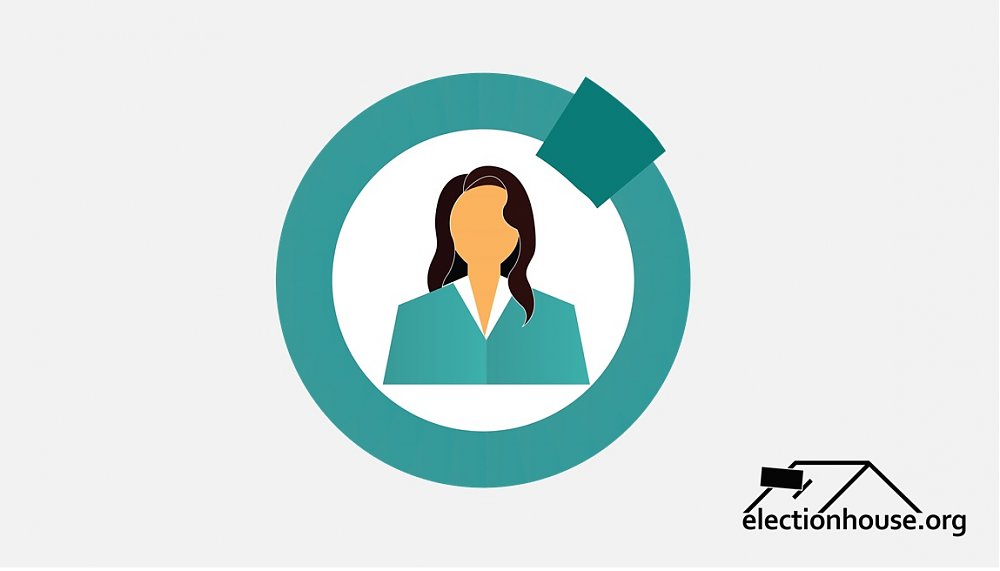PKPU 10/2023 makes it aware that women as citizens' identities that have been guaranteed in the constitution and laws can be weakened through technical electoral regulations. Even the highest law in this country does not strengthen women's vulnerable position in politics.
Article 8 paragraph (2) contains a new clause which states that the determination of women's representation in the nomination is based on rounding down the numbers. If this clause is implemented, from several simulations, the number of women who will be in the nomination will not reach 30 percent.
Even though in the 2014 and 2019 elections, female legislator candidates are always guaranteed to attend at least 30% in each electoral district. What has been positively achieved at the legal level and election results, may be reduced or even lost.
Political vulnerability
In general, women's political vulnerability refers to conditions in which women face greater challenges and obstacles in engaging and participating effectively in the political arena. This is related to gender inequality that still exists in many countries around the world, where women often experience discrimination, stereotypes, and barriers in accessing, influencing, and playing a role in the political process.
Unfortunately, there are still many people who doubt the political vulnerability of women. In fact, the form of women's political vulnerability is a real thing. This reality exists in the form of political violence inequality, access inequality, gender stereotypes, and lack of representation.
The most obvious physically is the presence of political violence. Women are often the targets of political violence, including threats, harassment or physical violence. This can create an insecure climate for women seeking to become involved in politics or run for political office. Such violence can also be used as a tool to intimidate and try to distance women from the political arena.
In the reality of unequal access, women often face difficulties in accessing state life compared to men. For example, in accessing the political education, financial resources, training, and political networks needed to engage in politics. This can make women less prepared to engage in the political arena and influence political decisions.
In reality, gender stereotypes, society can limit the role of women in politics. Compared to men, women are often seen as less capable, less experienced, or less assertive in making political decisions. These stereotypes can reduce support for women in politics and make them less credible as leaders.
The reality that manifests as a result is a lack of representation. Women are often underrepresented in political institutions and in positions of power. The number of women elected to political positions, such as parliament or head of state, is usually fewer than men. This lack of representation can reduce women's ability to advocate for their interests and influence political decisions that affect their lives.
Legal reinforcement
Awareness of women's political vulnerability has encouraged a number of people from various stakeholders in Indonesia to strengthen women's position in legal reform. As the dynamics of Reformasi accompanied the process of amending the constitution and revising many laws, a number of laws and legal provisions were achieved that strengthened the position of women. Among them are gender quotas, election quotas, budget appreciation, as well as education and training.
Real gender quotas are embodied in Law Number 2 of 2008 concerning Political Parties. The form is the obligation for each political party to become a legal entity must have women at least 30 percent of the board. This is intended to ensure that there is equal representation of women in the list of legislative candidates for political parties.
Election quotas are a consequence of gender quotas in political parties. Law Number 7 of 2017 concerning General Elections most recently guarantees election quotas. Under this legal provision, political parties are required to fulfill a minimum quota of 30% of female candidates on the proposed list of candidates for legislative members. If political parties do not meet this quota, political parties cannot participate in elections.
Legal affirmation in the form of a budget was also enforced. This can be an appreciation that political parties can take advantage of. The presence of women candidates in political parties encourages the receipt of gender quota budgets from various laws and regulations and from various state institutions.
Education and training programs are part of the form of budget affirmations. With the existence of a government budget for women whose form is education and training for political women, this will become part of the law that strengthens women's position.
Still vulnerable
From the various affirmations of political women's law, the number of women has increased in political participation. In candidacy for legislative elections (DPR and DPRD), women present more than 30 percent as legislative candidates in all political parties and in all electoral districts. This affirmation resulted in an increasing trend in the electability of women into parliament. From the 1999 to 2019 elections, the percentage of women elected was 9%, 11.1%, 17.9%, 17.3% and 20.9%, respectively.
From this increasing trend, it does not mean that women have been placed on an equal footing with men as citizens. In terms of numbers, not only is it still far from the equivalent of 50% but also has not yet reached a minimum of 30%. In this situation, PKPU 10/2023 was even issued by the KPU.
All of these things make us aware that an increase in the affirmation of women's political law along with an increase in its quantity does not automatically reduce political injustice. Patriarchal politics can even strengthen. If at the level of the constitution and election laws this cannot be done, technical regulations such as PKPU can be intervened to weaken women's politics.
If the identities of residents named women who have been guaranteed the affirmation of the law are still vulnerable, what about the identities of marginalized citizens or other minorities?
USEP HASAN SADIKIN











